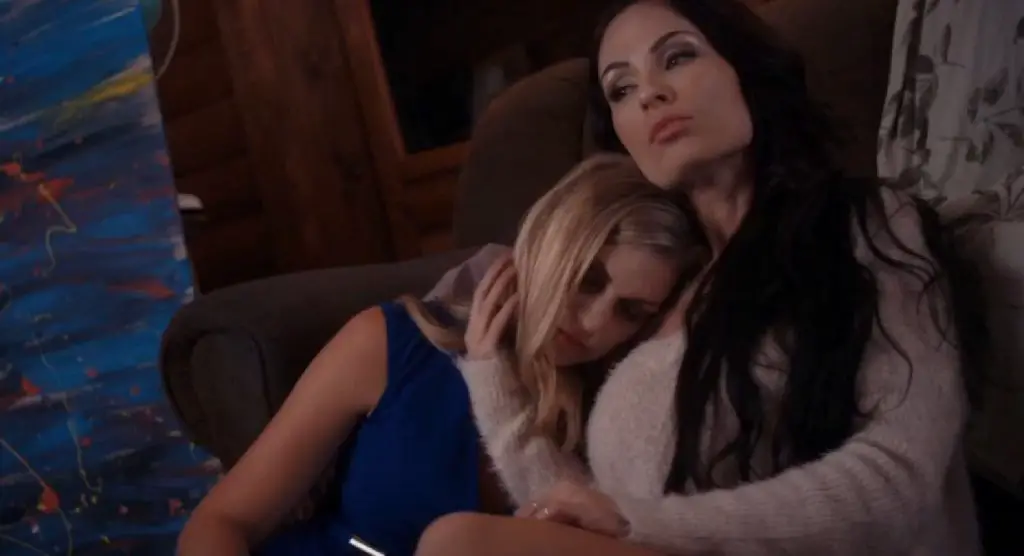
If there’s anyone we should feel free to be ourselves around, you’d think it would be our parents. After all, they’ve literally known us longer than anyone on the planet. They’ve seen our brightest achievements and our biggest screw-ups. They’ve nurtured us, coached us, scolded us and tried to teach us everything they know. So why is it, then, that so many of us feel like we have to put up a front for our parents…especially when one of them is ill and possibly dying? It’s this unspoken question that seems to be at the heart of director Kat Candler’s understated yet haunting short film, “Roberta Wells.”
The bulk of this film takes place around the dinner table. There’s a swirl of chatter and activity as a family pretty much like any other wraps up a holiday meal. The men head to the living room to watch a game on TV, Josh (Jason Neufeld) heads outside for a smoke, and Maggie (Lorie Marsh), the overbearing, slightly loud-mouthed eldest daughter takes command of the clean-up operations. Roberta (Veronica Caudill), meanwhile, sits with quiet dignity at the eye of this familial hurricane. With oxygen tubes clipped to her nose, Roberta’s darting eyes observe the crush of activities around her with varying degrees of interest. She injects the barest contribution to the overlapping ratta-tat-tat discussions, conversations that always seem to be about her, more than with her, before doing possibly the best thing she can do for her sanity: She joins Josh for the serenity of a smoke on the porch.
If there’s one thing Candler (“Cicadas”) excels at, it’s capturing the human essence of her characters in all their complexity, and she does so again here in this film. The production values of “Roberta Wells” are so simple as to be primitive. Indeed, a casual viewer might mistake the film for random home video footage of a family gathering…which, more than likely, is precisely the point.
We don’t exactly know whether Roberta’s merely ill or even if she’s dying, but the family members around her do. Yet, whether they’re genuinely trying to be helpful, they’re merely being “helpful” because of some hidden guilt or some other secret agenda, or they’re just talking loudly at Roberta as part of a denial or discomfort-driven false front of acting naturally, it’s clear when Roberta makes her way to join Josh on the porch, that she doesn’t need all this fuss.
All Roberta craves in “Roberta Wells” is some genuine human companionship. And if that’s what’s best for her, odds are that it’s all our parents probably want from us as well.
